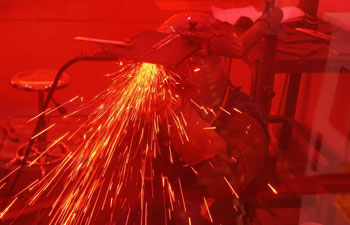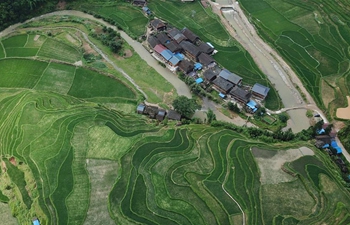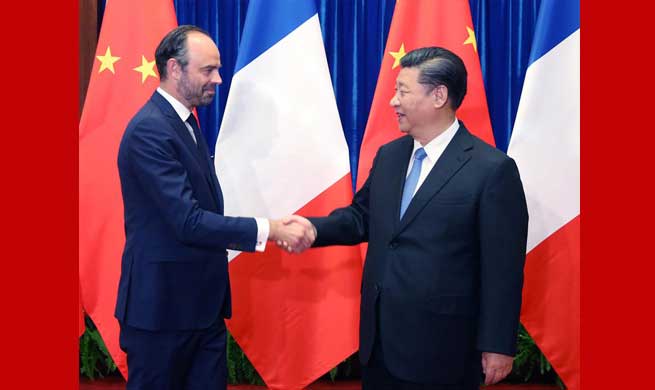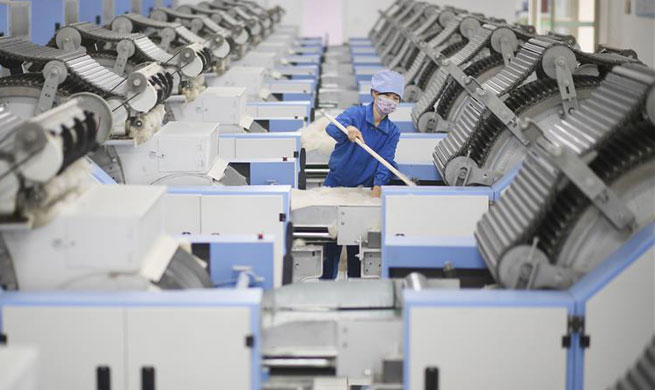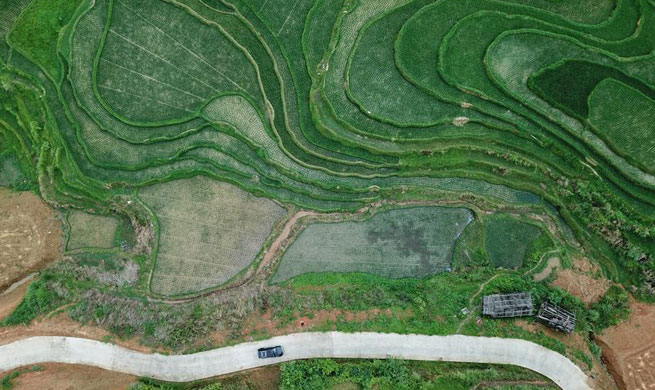by Murad Abdu
ADEN, Yemen, June 25 (Xinhua) -- Yemen's Foreign Minister Khaled Yamani said Monday that it will take at least eight years to clear about 1 million landmines planted by Houthi rebels across the country.
During a press conference held in Saudi Arabia's capital Riyadh, the newly-appointed foreign minister claimed that the huge number of landmines planted by Houthis caused hundreds of civilian casualties across the country.
Preliminary statistics indicated that the Houthis planted these landmines after seizing many provinces militarily in 2015.
The minister said that the Houthis also laid hundreds of improvised sea mines, threatening the international shipping routes in the Red Sea and the Bab-el-Mandeb Strait.
"Defusing the mines completely needs at least eight years," the Yemeni minister said, adding that "Houthis are violating the international humanitarian law by turning residential areas into fields of landmines and death."
Yamani urged the international community to condemn the activities of the Houthis and stand with the Yemeni people against the rebels.
Meanwhile, a military commander loyal to Yemen's government told Xinhua by phone that the Houthis deliberately laid various kinds of landmines across the farms and around populated areas of Hodeidah province.
He said that the Houthis are using landmines excessively in a desperate attempt to impede and slow the advancing Yemeni government troops in Hodeidah in recent days.
"At the beginning, we advanced very fast and seized many areas in Hodeidah, but this week landmines posed a real threat to our soldiers and killed some of them," the commander said.
He added that "units specialized in dismantling landmines need much time to complete their task because Houthis are planting more mines every day and everywhere."
Some residents who escaped the war-torn areas in Hodeidah told Xinhua that they will not be able to return to their homes after the Houthi gunmen were expelled by government forces last week.
"We survived the armed confrontations, but landmines are seen as a killing monster that is waiting for our comeback," said a displaced man, named Taha Ahdal.
"The neighborhood where my house is located is now free of Houthis, but I can't take my children back to be killed by landmines," Ahdal said.
He added that "Houthis planted landmines inside residential buildings, roads, and around farms and don't care about targeting innocent civilians."
Yemeni anti-bomb disposal units managed to defuse about 300,000 landmines and improvised devices planted by Houthis in government-controlled areas over the last couple of years.
An official of Yemen's National Center for Controlling Landmines told Xinhua that "our country is suffering from landmines and Houthis are still establishing factories to produce more bombs."
The official said, on condition of anonymity, that the Houthis have hired experts who are experienced in producing landmines and studied abroad, particularly in Iran.
Previous reports of humanitarian organizations suggested that Yemen has become one of the largest landmine battlefields in the world since the Second World War.
The Houthi rebels produce different forms of landmines, according to local government officials, including handmade mines that are disguised as rocks and concealed in sandy dunes to target both civilians and soldiers in mountainous area of the country.
The Houthis, aligned with Iran, launched a large military campaign and seized the capital Sanaa in late 2014, forcing Yemen's President Abdu-Rabbu Mansour Hadi and his government to flee into the southern port city of Aden.
Subsequently, the pro-Houthi forces, backed by armored vehicles, attacked Aden and shelled Hadi's Republican Palace, leading him to escape again into exile in neighboring Saudi Arabia.
Saudi Arabia and other Arab countries intervened militarily and began pounding the Houthi-controlled capital Sanaa in March 2015 in response to an official public request from Hadi to protect Yemen and roll back Iran's influence.
The conflict between the Houthis and the Saudi-backed Yemeni government has recently entered its fourth year, aggravating the suffering of Yemenis and deepening the world's worst humanitarian crisis.
The ongoing fighting between the two warring rivals plunged the most impoverished Arab country in the Middle East into more chaos and violence.
Three quarters of the Yemeni population, or more than 22 million people, are in need of urgent humanitarian help, including 8.4 million who are struggling on the brink of famine.




